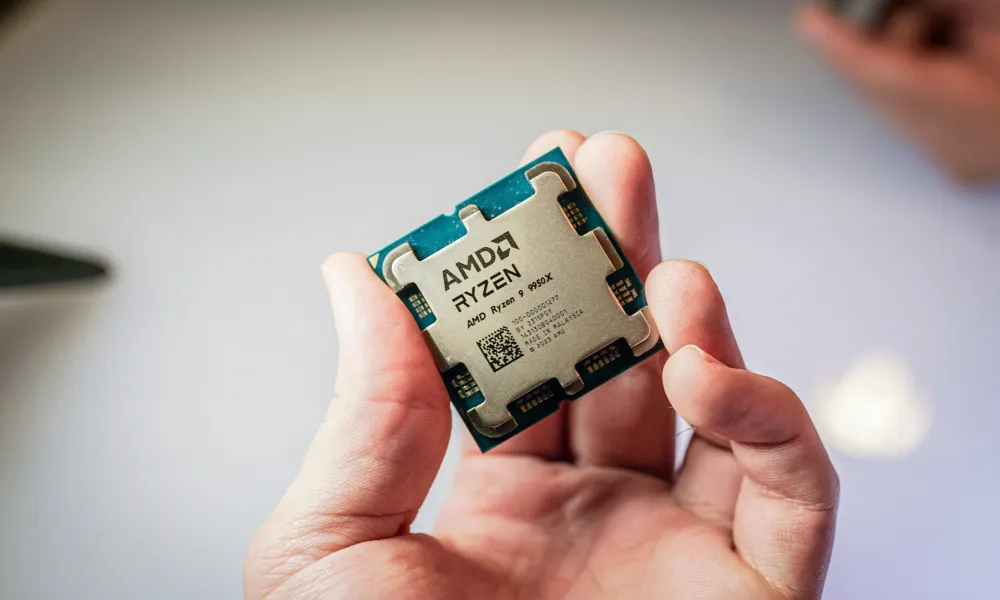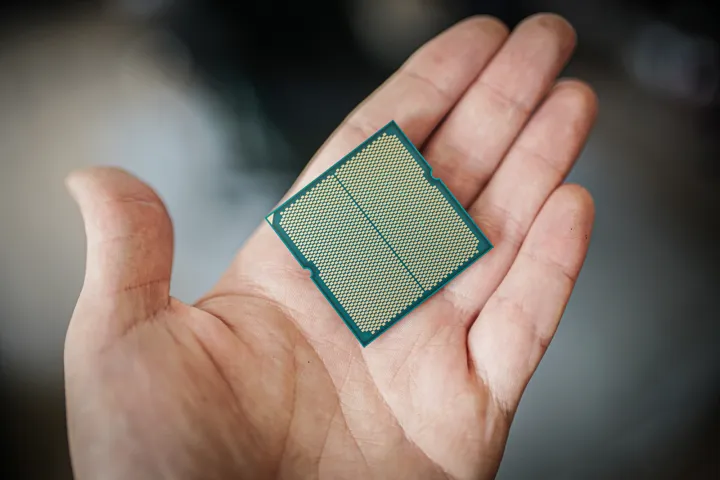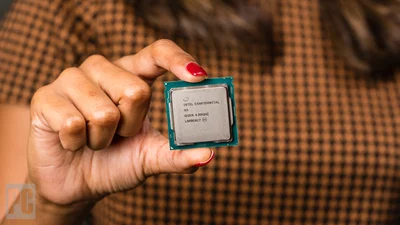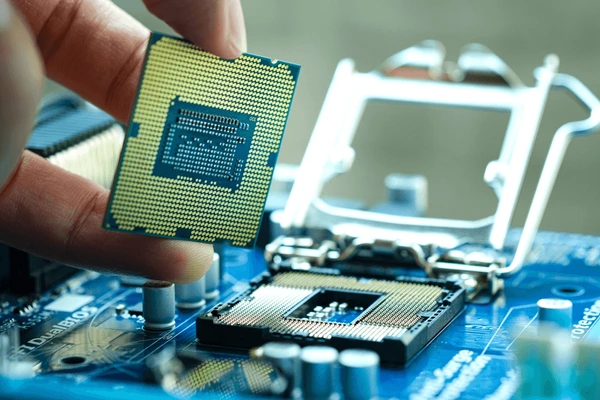Factors that don’t directly impact CPU performance include the cooling solution, power supply (PSU), operating system, and graphics card (GPU). While these components are essential for stable and efficient system performance, they don’t influence the CPU’s processing power directly.
From my experience, understanding which of the following does not determine CPU performance saved me from unnecessary upgrades. I learned that parts like the cooling system and PSU are crucial for stability but don’t make the CPU faster.
In this article, we will discuss “which of the following does not determine cpu performance”.
Table of Contents
Introduction
When it comes to computing, the Central Processing Unit (CPU) is the brain of the system, determining the speed, responsiveness, and overall functionality of the device. Whether you’re gaming, working, or browsing, your CPU’s performance directly influences your experience. But what factors actually impact CPU performance, and what doesn’t? This article will dissect CPU performance, clarifying common misconceptions and helping you understand what truly makes a CPU powerful.
What Determines CPU Performance?
Before diving into specifics, it’s essential to grasp what “CPU performance” means. Essentially, CPU performance refers to how effectively and quickly the CPU can process information.

Several key factors impact this capability, each adding to the CPU’s overall potential and user experience. By understanding these factors, users can make more informed choices when upgrading or purchasing CPUs.
Factors That Do Affect CPU Performance
Below are some of the most significant factors that impact CPU performance:
Clock Speed
Clock speed is one of the easiest indicators of a CPU’s performance. Measured in GHz, it signifies how many cycles a CPU can complete per second. The higher the clock speed, the faster the CPU can process instructions.
Core Count
Modern CPUs often come with multiple cores, enabling them to handle more tasks simultaneously. This factor is crucial in multi-threaded applications, as more cores often equate to better performance.
Thread Count
Threads are the virtual versions of CPU cores. A higher thread count allows a CPU to manage more tasks concurrently, improving multitasking performance.
Read Most Important: How to Improve CPU Performance – A Comprehensive Guide 2024!
Cache Size
Cache is the CPU’s onboard memory, used to store frequently accessed data. Larger cache sizes can help the CPU retrieve data faster, boosting performance.
Architecture and Instruction Sets
A CPU’s architecture and instruction sets define its efficiency and capabilities. Newer architectures often come with enhanced instruction sets that handle tasks more efficiently than older models.
Thermal Design Power (TDP)
TDP represents the amount of heat a CPU generates under load. CPUs with higher TDPs usually need better cooling solutions but are often more powerful.
Power Efficiency
CPUs that can perform more calculations per watt of power are considered more efficient. Power-efficient CPUs often maintain better performance over time without overheating.
Process Node (Nanometer Size)
Process node refers to the manufacturing process, measured in nanometers. Smaller process nodes mean more transistors can fit on the CPU, increasing its efficiency and power.
Which of the Following Does Not Determine CPU Performance?
Understanding which components and factors don’t directly impact CPU performance is equally important. Let’s clarify common misconceptions about elements that might affect overall system performance but don’t directly change the CPU’s inherent capabilities.
Factors That Don’t Affect CPU Performance
Cooling Solution
A good cooling solution ensures that the CPU doesn’t throttle down due to overheating. However, while it maintains performance, it does not enhance the CPU’s inherent processing capabilities. In other words, proper cooling is crucial, but it doesn’t make the CPU faster by itself.

Operating System
Your choice of operating system impacts user experience, but it doesn’t alter the CPU’s raw performance capabilities. A well-optimized OS can improve overall system efficiency, yet it doesn’t inherently change how quickly the CPU processes data.
Graphics Card (GPU)
The GPU is designed to handle graphics processing and doesn’t affect the CPU’s performance in non-graphical tasks. While both components are critical for gaming and video tasks, their functions are separate.
Power Supply (PSU)
A stable PSU is essential to ensure the system has adequate power, but it doesn’t impact the CPU’s inherent performance. However, an insufficient PSU can cause the system to shut down or throttle, indirectly affecting performance reliability.
Storage (SSD/HDD)
Although faster storage can speed up data retrieval times, it doesn’t impact how the CPU processes data once it’s in memory. Storage upgrades are beneficial for overall system speed but don’t influence CPU capabilities directly.
Common Myths About CPU Performance
When discussing CPU performance, there are a few myths worth dispelling:
Myth 1: Higher Clock Speed Always Means Better Performance
While clock speed is important, it’s not the only factor that determines performance. A CPU with a lower clock speed but more cores can outperform one with a higher clock speed in multi-threaded tasks.
Read Most Important: ID-COOLING SL360 White CPU Liquid Cooler – Complete Guide 2024!
Myth 2: More Cores Are Always Better
For specific tasks, especially gaming, more cores do not necessarily equate to better performance. The software has to be optimized for multi-core processing, so an 8-core CPU might not perform better than a 4-core CPU in some cases.
Myth 3: GPU Can Enhance CPU Performance
While both work together for an optimal experience in tasks like gaming, they do not enhance each other’s performance. Each component handles specific tasks independently.
Why Understanding CPU Performance Matters
Choosing a CPU involves understanding how each factor contributes to performance. By knowing what does and doesn’t affect a CPU’s capabilities, users can avoid overspending on unnecessary components or upgrades. For those who use their PCs for gaming, content creation, or multitasking, a clear grasp of CPU performance factors helps ensure the best value for their investment.
Which of the following does NOT determine CPU performance?
Factors such as the CPU’s physical appearance or brand marketing do not determine CPU performance. Key performance determinants include clock speed, core count, and architecture.
Which of the following statements about CPU speed is not true?

A common misconception is that higher CPU speed always results in better performance in all applications. While speed is important, performance can also depend on other factors such as CPU architecture, the number of cores, and how well software is optimized for the hardware.
The CPU includes which two major parts?
The two major parts of a CPU are the Arithmetic Logic Unit (ALU), which performs arithmetic and logic operations, and the Control Unit (CU), which directs the operation of the processor and coordinates the activities of the CPU.
Hard drives are classified as which type of storage?
Hard drives are classified as secondary storage. They are used to store data permanently, unlike RAM, which is volatile and used for temporary data storage.
What does the term “GHz” mean?
The term “GHz” stands for gigahertz, which is a unit of frequency equal to one billion hertz. In the context of CPUs, it measures the clock speed, indicating how many cycles a CPU can perform in one second.
Read Most Important: Infinite Health SFV Cheat Engine CPU vs CPU – Complete Guide 2024!
Which of the following is an example of a resource-intensive program that might require more RAM?
Examples of resource-intensive programs include video editing software (like Adobe Premiere Pro), 3D modeling applications (like Blender), and high-end games (like Call of Duty). These programs typically require more RAM to function efficiently.
Which of the following is not true about earbuds?
A common misconception about earbuds is that they always provide superior sound quality compared to headphones. In reality, sound quality can vary significantly based on the design, drivers, and technology used in the earbuds.
What determines CPU performance?
CPU performance is determined by several factors, including clock speed (measured in GHz), the number of cores, CPU architecture, cache size, and thermal design power (TDP).
Which of the following does not determine CPU processing power?
Factors like the physical design or aesthetics of the CPU do not determine processing power. For instance, the color or shape of the CPU casing has no impact on its performance.
Which of the following factors determines the performance of a CPU?
Key factors that determine CPU performance include clock speed, core count, cache size, and the CPU’s architecture. The efficiency of instruction processing also plays a crucial role.
Which of the following is a measure of CPU performance?
CPU performance can be measured using benchmarks, which evaluate the CPU’s speed and efficiency in completing tasks, often represented in terms of operations per second or frames per second in gaming contexts.
What 3 factors affect CPU speed?
The three primary factors that affect CPU speed are:
- Clock Speed (GHz): The frequency at which the CPU can process instructions.
- Number of Cores: More cores allow a CPU to perform multiple tasks simultaneously.
- CPU Architecture: The design of the CPU affects how efficiently it processes instructions.
What determines CPU usage?
CPU usage is determined by the workload placed on the CPU, which includes the number of active processes, the types of tasks being executed (e.g., gaming, rendering), and the efficiency of the software running.
Which of the following do not affect CPU performance?
Elements such as the CPU’s brand name, color, or packaging do not affect its performance. Only technical specifications like clock speed, core count, and architecture do.
What are the 4 factors that the computer performance depends on?
Computer performance generally depends on:
- CPU Performance
- RAM Size and Speed
- Storage Type and Speed (HDD vs. SSD)
- Graphics Card Performance (for tasks involving graphics)
What factors determine the processing of a CPU?
Factors that determine CPU processing include clock speed, the architecture of the CPU, the number of cores, cache size, and thermal management capabilities.
What does CPU determine?
The CPU determines the speed and efficiency with which tasks are executed on a computer, affecting everything from simple calculations to complex processing tasks in software applications.
What are the performance criteria of a CPU?
The performance criteria of a CPU typically include:
- Clock Speed (GHz)
- Core Count
- Cache Size
- Thermal Design Power (TDP)
- Benchmarks (performance tests)
What factors determine the processing power of a CPU quizlet?
Factors include clock speed, architecture, core count, cache size, and thermal management capabilities.
What does CPU depend on?
The CPU depends on its architecture, the manufacturing process (like transistor size), power supply, cooling solutions, and the tasks it’s designed to handle.
How to calculate CPU performance?
CPU performance can be calculated using benchmarks that assess how quickly the CPU can execute specific tasks or instructions, often expressed in terms of MIPS (Million Instructions Per Second) or FLOPS (Floating Point Operations Per Second).
What factors affect CPU performance?

Factors affecting CPU performance include clock speed, core count, CPU architecture, cache size, cooling solutions, and software optimization.
What determines a better CPU?
A better CPU is typically determined by a combination of higher clock speeds, more cores, advanced architecture, larger cache sizes, and better thermal management.
Read Most Important: Can I Use 1150 CPU On 1151 Motherboard – Complete Ultimate Guide 2024!
FAQs
What is the most critical factor in CPU performance?
The most critical factor often depends on the workload. For general performance, clock speed and core count are vital, but architecture also plays a significant role in efficiency.
Does the power supply affect CPU performance?
No, the power supply doesn’t directly impact CPU performance but ensures stable operation. An inadequate PSU can lead to system instability.
How do core count and thread count differ?
Cores are physical processing units, while threads are virtual divisions. More threads allow a CPU to manage more tasks at once.
Does the type of cooling solution affect CPU speed?
Indirectly, yes. Better cooling prevents throttling, allowing the CPU to maintain maximum speeds but not exceed its design limits.
Can I improve CPU performance without upgrading?
Yes, through system optimizations, such as managing background applications, cleaning up storage, and keeping the CPU cool.
Conclusion
When it comes to determining CPU performance, factors like clock speed, core count, and architecture are critical. Meanwhile, elements like the cooling solution or GPU, while essential to overall system stability and performance, don’t directly impact the CPU’s raw processing power. By understanding what influences CPU performance, users can make informed choices and build systems tailored to their needs.
Read Most Important:

[…] Read Most Important: which of the following does not determine cpu performance – Complete Guide 2024! […]